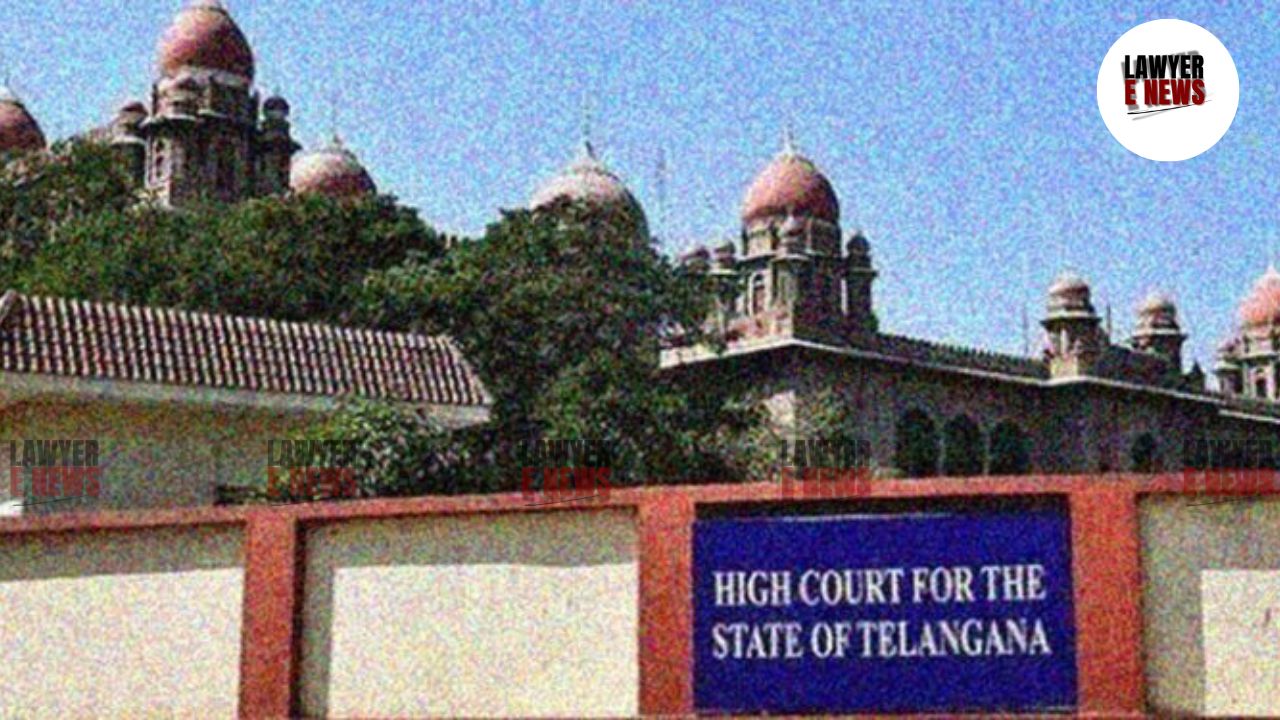-
by Admin
15 February 2026 5:35 AM



Telangana High Court dismissed a writ petition filed by M. Malla Reddy challenging the issuance of summons by the Enforcement Directorate (ED) under the Prevention of Money Laundering Act, 2002 (PMLA). The court ruled that the ED's summons for further investigation did not violate Article 20(3) of the Constitution—the right against self-incrimination—nor did it require prior permission from the Special Court handling the case.
The petitioner, M. Malla Reddy, was a former Director of Farmax India Ltd., and his role in an alleged money laundering case was under investigation by the ED. The case stemmed from an FIR registered in 2013, followed by an ECIR (Enforcement Case Information Report) registered by the ED in May 2022. In November 2023, the ED filed a complaint under Sections 44 and 45 of the PMLA, which was taken cognizance of by the Special Court at Nampally, Hyderabad, as S.C. No. 16 of 2023. The petitioner was listed as Accused No. 2.
The petitioner contended that once the Special Court had taken cognizance of the case, the ED could not summon him under Section 50 of the PMLA for further investigation without seeking the court’s permission. He argued that such summons violated his constitutional right against self-incrimination under Article 20(3).
Can the ED issue summons for further investigation after the Special Court takes cognizance of a case under the PMLA?
Does the issuance of summons under Section 50 of the PMLA violate the right against self-incrimination under Article 20(3)?
Is prior permission from the Special Court required for further investigation once the complaint is filed?
Further investigation is permissible under the PMLA, even after the complaint is filed and the Special Court takes cognizance. The court referred to Section 44 of the PMLA and Section 173(8) of the CrPC, clarifying that the ED is empowered to conduct further investigation without seeking prior permission from the Special Court.
The court held that Article 20(3), which protects an accused from being compelled to be a witness against himself, does not preclude the issuance of summons under Section 50 of the PMLA. The court cited the Supreme Court's ruling in Vijay Madanlal Choudhary vs. Union of India, where it was held that summons under Section 50 are part of an investigation process and do not amount to "testimonial compulsion."
The Enforcement Directorate (ED), having powers akin to a civil court, can summon individuals for investigation and for the production of documents even after the case has been taken cognizance of by the Special Court. The court noted that money laundering is a continuing offence, and further investigation is required to track the proceeds of crime, justifying the issuance of summons.
The Telangana High Court ruled that the ED's summons did not violate the petitioner's constitutional rights under Article 20(3). It also held that further investigation by the ED does not require prior court approval, as long as it pertains to gathering additional evidence related to the existing charges. The writ petition was dismissed, and the ED’s investigation was allowed to proceed.
Date of Decision: September 18, 2024
M. Malla Reddy vs. Union of India.
